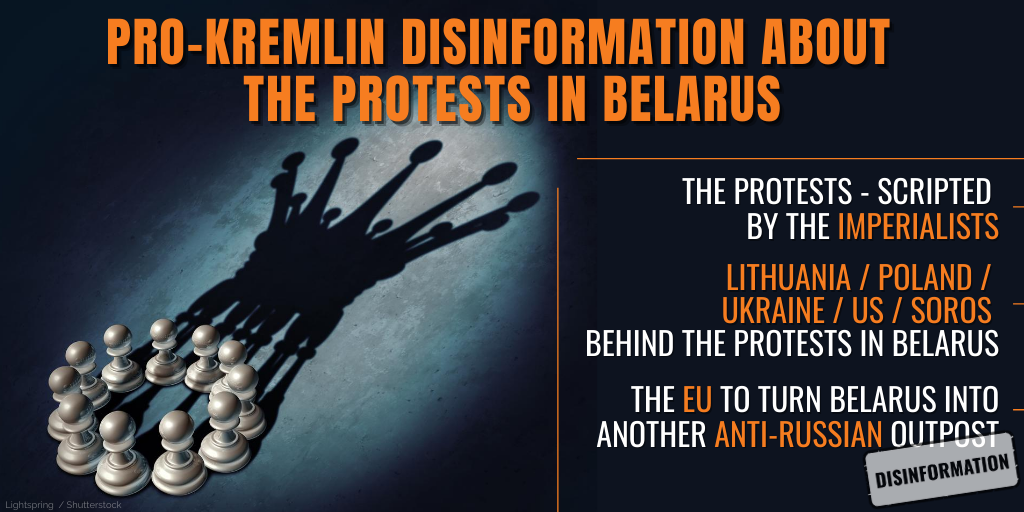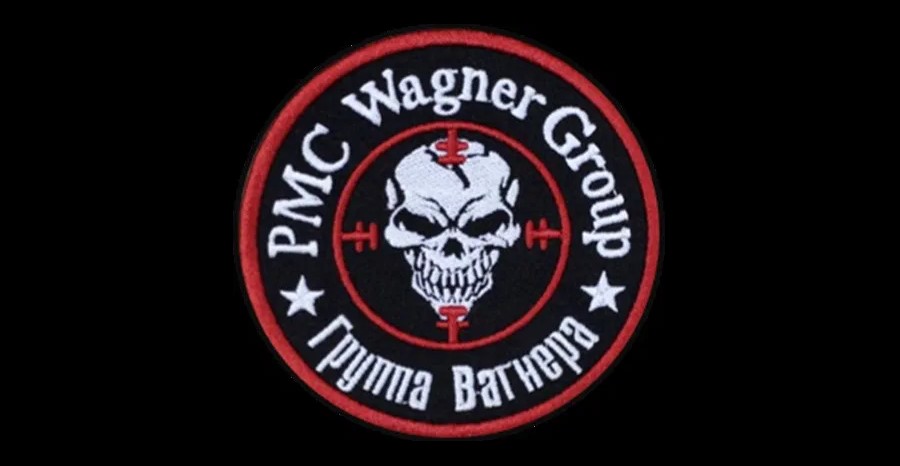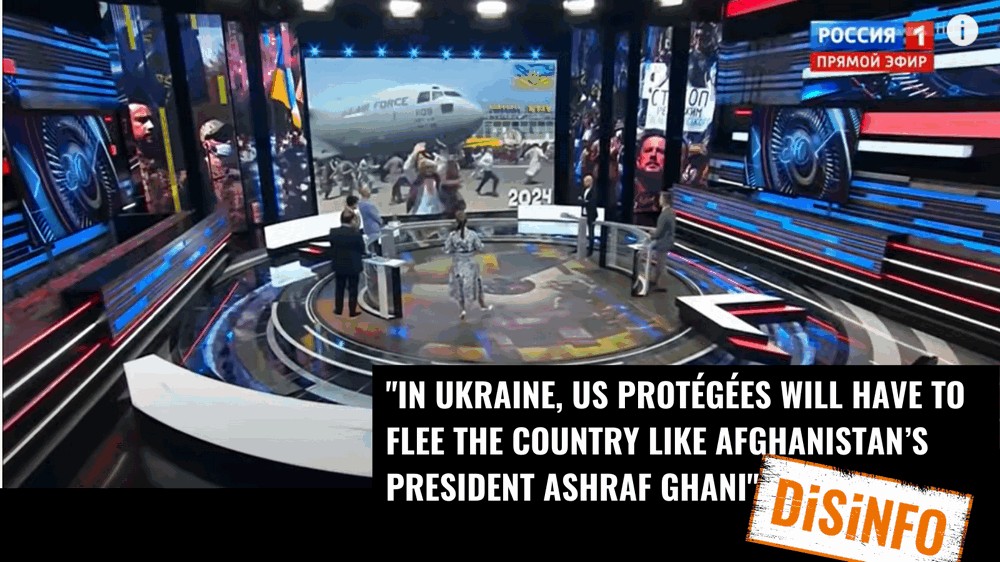For the week of 16-25 November 2018, the BAJ monitored prime-time content of the Belarusian TV channels that comprise the government-approved compulsory publicly available TV package.
The research revealed that 30% of the political talk shows and programs that the Belarusian TV channels broadcast on prime time were made in Russia. Four out of eight monitored channels offered more than 60% of Russian-made products at prime time. The total presence of Russian-made TV products on air in Belarus was estimated even higher, due to films and TV series. For example, TV series produced in Russia took over 67% of airtime on the state-funded Belarus-1, which positions itself as the main national Belarusian TV channel.

Contradictions and pro-Russian messaging
A further qualitative content analysis of the evening news programme on the national Belarus 1 channel, major state-funded newspaper SB Belarus Today and the Russia-sponsored Sputnik Belarus website revealed internal contradictions of public messaging within the Belarusian media.
According to the researchers, while the majority of recorded publications about the relations of Belarus and Russia were neutral and of “secure nature”, they contained two contradictory narratives: one highlighting the value of further integration with the Russian Federation, and the other emphasizing the sovereignty of Belarus and protection of Belarusian interests. Thus official assertions of independent Belarusian political position and national choices were followed by the Russia-centric economic, cultural and geopolitical views, with Belarusian national TV channel unconditionally accepting Russian interpretation of the Kerch Strait conflict.
During the monitoring period around 30% of evening news content on the Belarus 1 channel contained pro-Russian messaging and conveyed the Russian agenda. The researchers identified 9 basic “pro-Russian propaganda messages” that are consistent with some of the most frequent pro-Kremlin disinformation narratives, and that are used to shape Belarusian audiences’ understanding of national history, current politics and the future of national course:
- The USSR is a common history of Russia and Belarus, it is a shared victory in WWII. The West falsifies the history of WWII.
- Union of Belarus and Russia and their fraternal relations are the highest treasure. There is no alternative to the cooperation between Belarus & Russia.
- Belarusian and Russian people are brothers, but they need to be better friends. Lukashenka and Putin will put the things right.
- Russia and Belarus struggle against all. Anti-Russian agenda is the norm in Europe. NATO and EU are going to arrange a colored revolution in Belarus.
- Without Russia it is impossible to resolve important issues. Russia is the geopolitical centre.
- The EU is rotting, collapsing and bringing chaos.
- The Eurasian Economic Union is developing better than the EU.
- The United States is a threat to world peace
- Ukraine provoked Russia in the Kerch Strait.
Further reading:
- Figure of the week: 6 (How Western powers made six unsuccessful attempts to stage a “color revolution” in Belarus)
- Belarus already under Russian troll attack designed to give Moscow a base for Russian aggression
- When Moscow talks of ‘deep integration’ of Belarus, it means annexation, Lukashenka says
- Three telling poll results from Belarus
- Despite common poverty, rural Ukraine and rural Belarus now two different worlds
- Constantinople: Moscow could be stripped of autocephaly, while Belarus could gain it
- Lukashenka tells Putin’s new man in Minsk: ‘Belarus will not ever be part of Russia
- Moscow pursuing ‘forced integration’ of Belarus into Russia now, Sivitsky says
- FSB may be well pleased with Zapad-2017 outcome, Belarusian analysts say
- Struggle for Belarus: Minsk is promoting Belarusianization; Moscow, re-Sovietization
- Russian FSB abducts Ukrainian teen who went to meet a girl in Belarus
- Russian-speaking Belarusians and Ukrainians threaten Putin’s ‘Russian world’ and Russia itself
- Belarus and Ukraine cooperate in the face of Russian pressure





